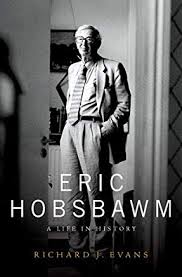David Marcus at The Nation:
 In the last weeks of 1954, Eric Hobsbawm and a small group of British historians set out on a goodwill trip to Moscow. It was a strange time to be visiting the Soviet Union, even stranger for a communist eager to see the achievements of actually existing socialism. Stalin had died the year before, and his corpse lay embalmed in a glass box in Red Square. After a vicious power struggle, Khrushchev had gained control of the government, but intrigue abounded. Beria, the longtime head of the security services, had been tried and executed in secret. Molotov and Malenkov, stalwarts of the old regime, were on their way out. Tens of thousands of prisoners, released after Stalin’s death, were returning from the gulag with horror stories of starvation and torture.
In the last weeks of 1954, Eric Hobsbawm and a small group of British historians set out on a goodwill trip to Moscow. It was a strange time to be visiting the Soviet Union, even stranger for a communist eager to see the achievements of actually existing socialism. Stalin had died the year before, and his corpse lay embalmed in a glass box in Red Square. After a vicious power struggle, Khrushchev had gained control of the government, but intrigue abounded. Beria, the longtime head of the security services, had been tried and executed in secret. Molotov and Malenkov, stalwarts of the old regime, were on their way out. Tens of thousands of prisoners, released after Stalin’s death, were returning from the gulag with horror stories of starvation and torture.
At first, nothing seemed amiss to Hobsbawm and his traveling companions. On their arrival in Moscow, they surveyed the city’s elaborate subway system, before being whisked to Leningrad in the sleek overnight cars of the Red Arrow.
more here.
